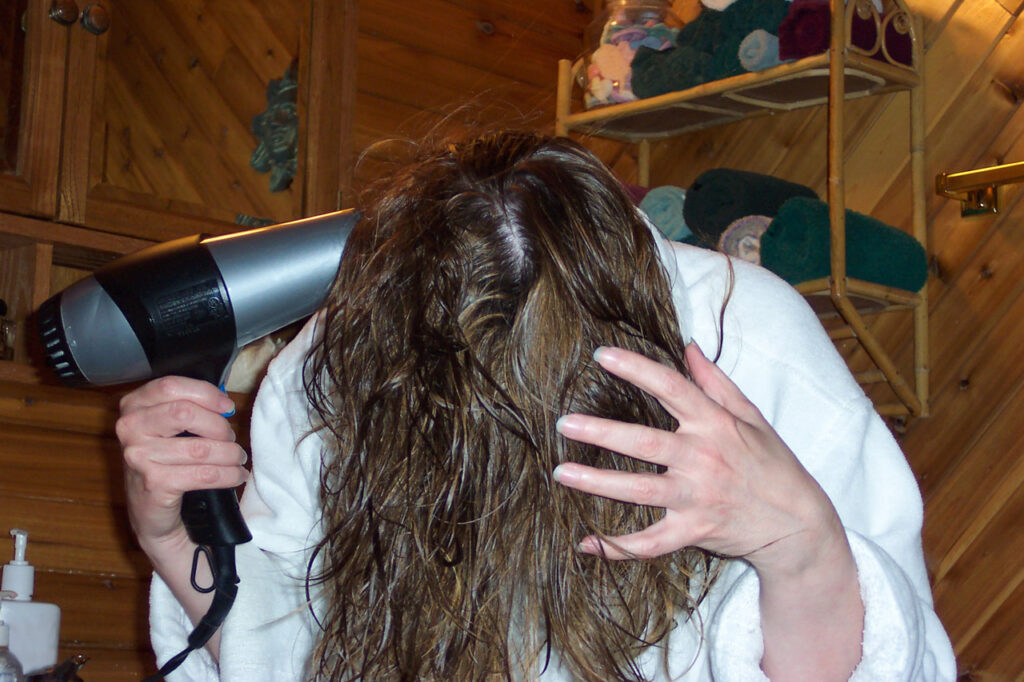Understanding Hair Fall: The Essential Guide to Vitamins – Hair fall, a common concern for both men and women, can be a distressing experience, impacting self-esteem and confidence. While various factors contribute to hair loss, including genetics, stress, and hormonal changes, the role of nutrition, particularly vitamins, cannot be overlooked. In this comprehensive guide, we delve into the significance of vitamins in combating hair fall and explore the top vitamins essential for maintaining healthy hair growth.
Understanding Hair Fall: The Essential Guide to Vitamins

The Role of Vitamins in Hair Health
Vitamins play a crucial role in promoting overall health, and their impact on hair growth and maintenance is profound. Deficiencies in certain vitamins can lead to weakened hair follicles, resulting in increased hair fall. Understanding the importance of vitamins for hair health is vital in addressing hair loss concerns effectively.
Importance of Vitamins for Hair Growth
Hair follicles require a steady supply of essential nutrients, including vitamins, to support healthy growth and prevent breakage. Vitamins contribute to strengthening the hair shaft, enhancing elasticity, and promoting the production of sebum, a natural oil that moisturizes the scalp and hair.
Common Vitamin Deficiencies Linked to Hair Fall
Several vitamins are directly associated with hair health, and deficiencies in these nutrients can exacerbate hair fall. Vitamin deficiencies commonly linked to hair loss include vitamin A, vitamin B complex, vitamin C, vitamin D, and vitamin E. Understanding the role of each vitamin is crucial in addressing hair fall concerns effectively.
Top Vitamins for Hair Fall
Incorporating a variety of vitamins into your diet can significantly impact hair health and reduce hair fall. Let’s explore the top vitamins essential for combating hair loss:
Vitamin A
Vitamin A is vital for cell growth, including hair follicles. It helps produce sebum, which moisturizes the scalp and keeps hair healthy.
Vitamin B Complex
The B vitamins, including biotin (B7), niacin (B3), and pantothenic acid (B5), play a crucial role in promoting hair growth and preventing hair loss.
Vitamin C
Vitamin C is an antioxidant that aids in the production of collagen, a protein essential for hair structure. It also helps absorb iron, a mineral necessary for healthy hair growth.
Vitamin D
Vitamin D stimulates hair follicles and helps maintain hair density. Deficiencies in vitamin D have been linked to hair loss conditions like alopecia areata.
Vitamin E
Vitamin E acts as an antioxidant, protecting hair follicles from oxidative stress. It also enhances blood circulation to the scalp, promoting hair growth.
Sources of Hair Fall Vitamins
Obtaining vitamins through a balanced diet is the most effective way to support hair health. Incorporating a variety of nutrient-rich foods ensures an adequate intake of essential vitamins necessary for preventing hair fall.
Natural Food Sources
- Vitamin A: Carrots, sweet potatoes, spinach, and kale.
- Vitamin B Complex: Whole grains, eggs, nuts, and leafy greens.
- Vitamin C: Citrus fruits, strawberries, bell peppers, and tomatoes.
- Vitamin D: Fatty fish, fortified dairy products, and sunlight exposure.
- Vitamin E: Almonds, sunflower seeds, avocado, and spinach.
Supplements
In cases where dietary intake may be insufficient, supplements can be beneficial. However, it’s essential to consult a healthcare professional before incorporating supplements into your routine to avoid potential side effects and interactions with medications.
How Vitamins Help Prevent Hair Fall
Understanding how vitamins contribute to hair health can guide individuals in making informed choices to prevent hair fall effectively.
Strengthening Hair Follicles
Vitamins nourish the scalp and hair follicles, strengthening them and reducing breakage. This results in thicker, healthier hair with reduced shedding.
Promoting Hair Growth
By supporting cell growth and repair, vitamins encourage the growth of new hair strands, resulting in increased hair density and volume.
Improving Scalp Health
A well-nourished scalp is essential for healthy hair growth. Vitamins promote scalp health by reducing inflammation, balancing oil production, and improving circulation.
Best Practices for Using Hair Fall Vitamins
While vitamins offer numerous benefits for hair health, it’s essential to use them correctly to maximize their effectiveness and minimize any potential risks.
Recommended Dosage
Follow the recommended dosage guidelines provided on supplement labels or as prescribed by a healthcare professional. Avoid exceeding the recommended intake, as excessive consumption of certain vitamins can lead to adverse effects.
Potential Side Effects
Some vitamins, particularly fat-soluble ones like vitamin A and vitamin E, can cause toxicity when consumed in large doses. Be mindful of potential side effects and discontinue use if you experience any adverse reactions.
Consultation with a Healthcare Professional
Before starting any new vitamin regimen, especially if you have underlying health conditions or are taking medications, consult with a healthcare professional to ensure compatibility and safety.
Additional Tips for Hair Fall Prevention
In addition to incorporating vitamins into your diet, adopting healthy lifestyle habits can further support hair health and reduce hair fall.
Maintaining a Balanced Diet
A well-rounded diet rich in fruits, vegetables, lean proteins, and healthy fats provides essential nutrients for overall health, including hair growth.
Proper Hair Care Routine
Avoid excessive heat styling, harsh chemicals, and tight hairstyles that can damage hair and exacerbate hair fall. Use gentle, nourishing hair care products suitable for your hair type.
Stress Management Techniques
Chronic stress can contribute to hair fall by disrupting hormone levels and impairing nutrient absorption. Practice stress-reducing activities such as meditation, yoga, or spending time in nature to promote relaxation and overall well-being.
Conclusion
In conclusion, incorporating vitamins into your diet is crucial for maintaining healthy hair growth and preventing hair fall. By understanding the role of vitamins in promoting scalp and hair health, individuals can make informed choices to support their hair goals. Remember to prioritize a balanced diet, proper hair care routine, and stress management techniques for optimal hair health and vitality.
FAQs (Frequently Asked Questions)
- Can vitamin supplements alone prevent hair fall?
- While vitamin supplements can support hair health, they are most effective when combined with a balanced diet and proper hair care routine.
- How long does it take to see results from vitamin supplementation for hair fall?
- Results may vary depending on individual factors such as diet, genetics, and the underlying cause of hair fall. Consistent use of vitamins along with healthy habits may lead to visible improvements in hair health over time.
- Are there any vitamins specifically for promoting hair growth?
- Certain vitamins, such as biotin (B7) and vitamin D, are known for their role in promoting hair growth and can be beneficial for individuals experiencing hair loss.
- Can vitamin deficiencies cause sudden hair loss?
- Yes, deficiencies in essential vitamins like vitamin A, B complex, and vitamin D can contribute to sudden hair loss. Addressing these deficiencies through diet and supplementation may help prevent further hair fall.
- Are there any vitamins to avoid for individuals experiencing hair fall?
- While vitamins are generally beneficial for hair health, excessive intake of certain vitamins, such as vitamin A, can lead to adverse effects and exacerbate hair fall. It’s essential to follow recommended dosage guidelines and consult with a healthcare professional if you have concerns.




